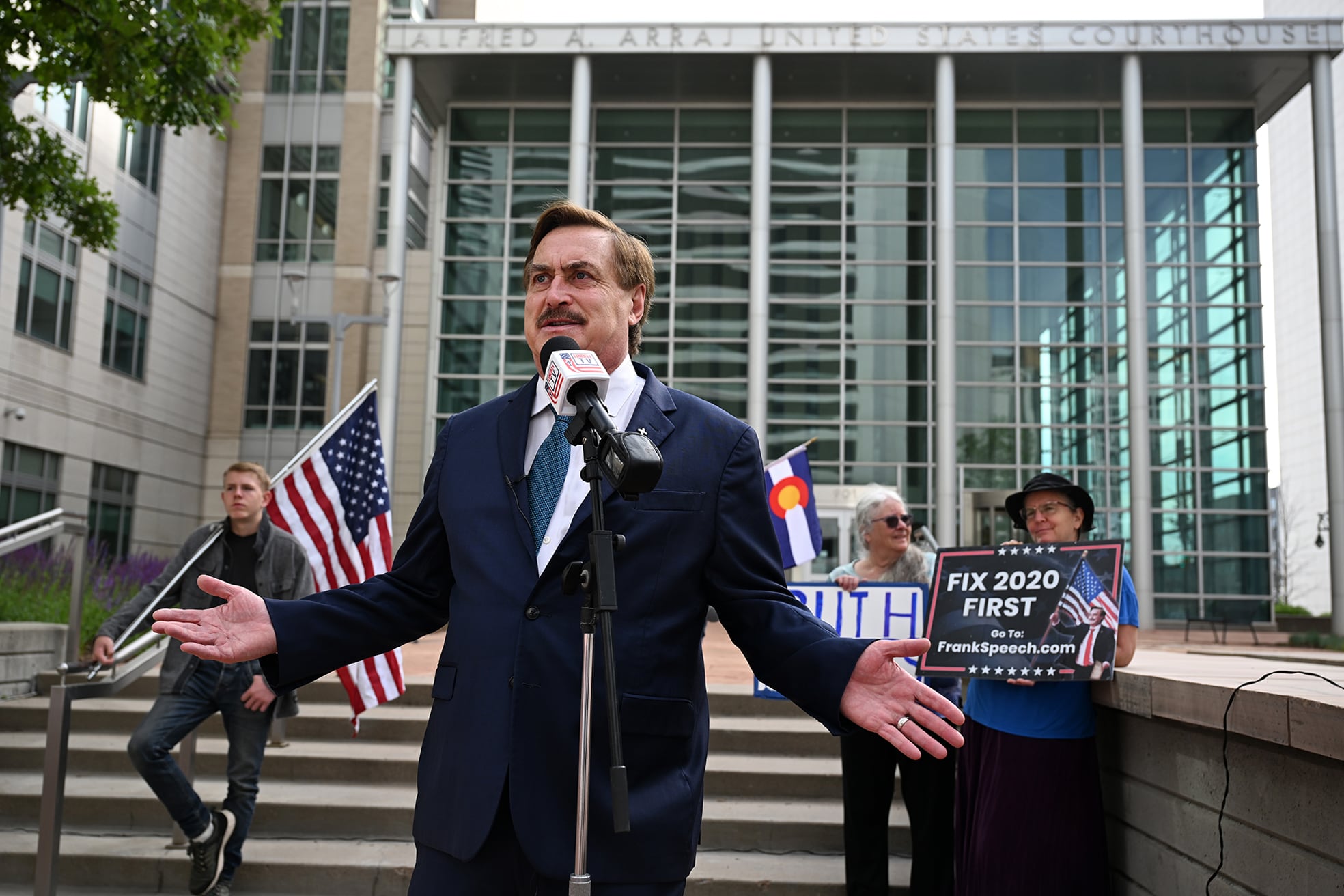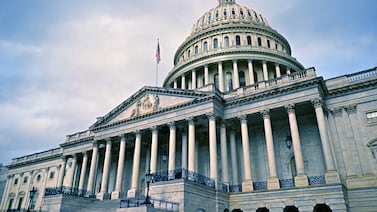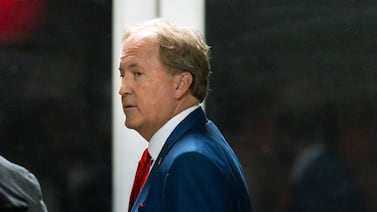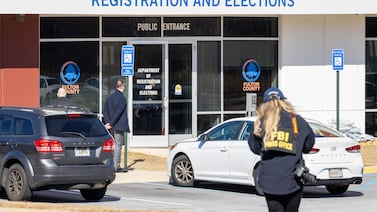Votebeat is a nonprofit news organization reporting on voting access and election administration across the U.S.
This news analysis was originally distributed in Votebeat’s free weekly newsletter. Sign up to get future editions, including the latest reporting from Votebeat bureaus and curated news from other publications, delivered to your inbox every Saturday.
Donald Trump’s second term is shaping up to be just as much about the past as the future. Not the past as it unfolded, but the version of events as he wants them remembered.
There are a few troubling examples of how the president and his allies are actively attempting to reshape public views of the 2020 election and the Jan. 6, 2021, insurrection — and how these efforts are starting to affect real people and real institutions.
Take Oklahoma. Teachers there are now facing updated social studies standards that instruct students to “identify discrepancies in 2020 elections results” — not to examine election systems or to discuss voter confidence, but to presume that the election was flawed. This language is a quiet but profound distortion: It accepts Trump’s false narrative of fraud and requires educators to teach that falsehood as fact.
This illustrates the insidious consequences of partisan narratives hardening into policy. Oklahoma’s education chief, Ryan Walters, has aligned himself with efforts to eliminate so-called left-wing indoctrination in schools. But he’s supporting these new standards, which contradict the facts made plain in every credible post-election review, from Trump’s own first-term Department of Justice to GOP-led audits. Courts, including those with Trump-nominated judges, rejected dozens of spurious legal challenges, and officials in every state certified the results.
These facts have been sidelined in shaping what schoolchildren learn, which has long-term implications for public trust in elections.
Or consider the protests against aggressive immigration raids in Los Angeles. Trump has called the demonstrators there “insurrectionists” and is moving military forces into the city.
And what about the convicted insurrectionists who participated in the Jan. 6 attack on the U.S. Capitol? Trump issued them pardons and commutations as one of the first acts of his second term, erasing the crimes and violence of that day — including threats to execute his vice president — from the historical record. (A plaque honoring law enforcement officials who defended the Capitol that day still hasn’t been installed, despite pleas to House Speaker Mike Johnson.)
Trump’s administration is also reportedly developing a plan to pardon the “fake electors” and other Trump allies charged or convicted in connection with attempts to overturn the election, as well as the plot to kidnap Michigan’s Democratic governor, as part of a broader effort to shield MAGA supporters from legal consequences, and perhaps convey the sense that these events never happened.
That is, the president is using both his immense influence and his constitutional authority to bend justice, public education, and public memory toward a false understanding of the past. And his allies are bending to his will.
What does this tell us about Trump’s capacity to reshape perceptions in the face of actual facts? And can anything stand in his way?
Some answers may come from a federal courtroom in Denver, where one of the more surreal chapters of the 2020 fallout is still playing out. That’s where the defamation trial against Trump ally and MyPillow CEO Mike Lindell — brought by former Dominion Voting Systems executive Eric Coomer — is underway.
Lindell, who has claimed that Dominion and Coomer were part of a scheme to steal the election from Trump, once promised that this trial would prove him right. But his lawyers seem to be arguing now that he’s so erratic, so impulsive, that nothing he says could be taken seriously enough to count as defamation.
“It’s just words,” said Lindell’s attorney, according to a Denver reporter covering the trial. “All Mike Lindell did was talk.”
That’s a hell of a defense, and itself a rewriting of history. The problem with it is that millions of people did believe Lindell, and still do.
Coomer may get to clear his name in the case against Lindell, but the broader effort to rewrite the past is gaining ground where it matters most: in classrooms, in Congress, and in the minds of voters. Juries and the judiciary can punish lies, but they can’t reach every classroom or undo every pardon.
With so many institutional guardrails already buckling under pressure, the remaining checks are public memory, a free press, and a willingness — from enough of us — to keep insisting on saying what actually happened.
Jessica Huseman is Votebeat’s editorial director and is based in Dallas. Contact Jessica at jhuseman@votebeat.org.






